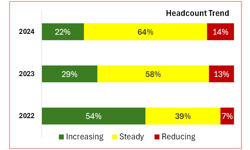Consider these three statements…
“When people read online, they lean forward because they are actively seeking information.”
“When people read online, they are busy and have lots of other sources competing for their attention.”
“When people read online, they have a more informal and personal relationship with the sites they visit.”
You’ll hear them a lot if you attend a “training course” on web copywriting. (By the way, if you do, ask the trainer how many websites they’ve actually written.) But what do they mean for us as copywriters? Do we need to yell at our reader to keep their attention? Like this…
Hey you! Want to make a million working part-time from home? [Imagine this set in all caps.]
Do we, perhaps, need to use different language? Like this…
Dude! Like, here’s this way awesome financial reporting software that, like, totally rocks!
Should we get straight to the facts and avoid “selling copy”? Like this…
18.5% ROI in year one. Galvanised steel outer jacket. 45 to 50 times more resistant to Kryptonite.
Different to what?
Those three opening statements do reflect the way a lot of people use the web. And web copywriting is different, it’s true. The question is, different to what? Let’s look at the three statements.
“When people read online they lean forward because they are actively seeking information.” Yes, they do. If that’s the mode they’re in and that’s what they’re doing online. Add in the difficulty of reading on screen and it’s a fair bet. But that’s great news for copywriters. Because it means our reader is engaged. In other words, we already have their attention: it’s now ours to lose. Shouting is unnecessary. In fact it’s counter-productive. All we need to do to hold their attention is answer our old friend, “What’s in it for me?” A simple storytelling style will do it. Like this…
Six months ago, Cindy Patton came to me with a problem. Her mortgage was in arrears. Her car had been repossessed. And her kids were going to school in patched uniforms. With the skills I taught her in a single afternoon, Cindy began to turn her life around. I showed her how to make her living as a freelance copywriter.
“When people read online, they are busy and have lots of other sources competing for their attention.” Also true. Though reflect for a moment on your own life. Even when you’re not online, if you’re at work or juggling a social life, chores, kids maybe and family relationships, you’re busy and feeling busier every day. So ANY copy you read has to be pretty immediate and to the point if you’re going to keep reading. As an example, here’s a simple technique guaranteed to stop your reader clicking away to another site. Ask them a question. So, if I was promoting freelance copywriting as a career, I might ask…
Which would you rather have – a top manager’s salary you earn working from home or a second income you can use to supplement your full-time wages?
“When people read online, they have a more informal and personal relationship with the sites they visit.”
This may be true. Speaking for myself, I often have little or no relationship with the organisation or its site that I happen to be visiting. I don’t mind being addressed as an individual, however. What isn’t true is that you must adopt some sort of generic web-speak. You might think you sound lush, awesome or random but your reader thinks you sound like a trendy vicar. Instead, try writing down what you’d say to your site visitor were you to meet them in a coffee shop.
Be yourself
Be yourself and be mindful, also, of their expectations. If you are the editor of a private equity magazine, your reader will expect a more serious tone of voice than that used by the editor of an extreme sports title.
The web, through its ubiquity, has popularised some of the rules us old DM hands have been banging on about for years. Namely, you must write copy that engages your reader. Copy that answers their questions, quickly. And that promises an end to whatever pain they are suffering – physical or metaphorical.
It’s possible that you could get away with bland, generic copywriting in the world of print. (Actually I don’t believe that. You could write it. But it wouldn’t work.) But in the world of web copywriting, though, your copy must be crystal-clear. It must be sharp. It must convey your message in an instant. And it must speak to the reader. Hmm… sounds like direct mail copy.
Case study - Crocus
So who’s writing well on the web? Forgive me if I don’t choose a magazine site and, instead, turn to another of my passions, gardening. I spend a fair amount of time on the Crocus website and boy, do these guys know how to write well for the web. So well in fact, that I want to devote the second half of this article to a mini-case study of their copy.
(Editor’s note: The Crocus website has changed since Andy wrote this piece, so, if you’re heading online, you might not find some of the examples he cites in the current version of the site.)
I’ve talked before about the need to reassure your online customers. Crocus obviously takes this seriously, since the site is peppered with reassurances. From the five logos for prizes they’ve won on the homepage to the 33-screen page of customer testimonials (complete with authentic spelling mistakes). But it’s more than just the safety factor that makes this site so compelling.
They have nailed the tone of voice and style that I imagine their customers respond to. (Know they will, in fact, since I am one of them.) There’s a great conclusion to this story too, right at the end of this article.
* Example #1 – Our Passion Statement
“Plants are our passion and we want to share everything we know about them whenever you like. So, if you need information before buying a plant, hand tool or piece of garden equipment we’re here to help. If you need a hand choosing the right plants for your garden, you’ll find useful plant guides throughout the site - including which plants to buy for different types of soil, as well as the best plants to buy for difficult conditions. If you need advice after buying a plant (pruning, fertilising that sort of thing) we’ll send you info by email. Gardening and plants are what we live for. We’d love to help you grow better plants and become a better gardener.”
Lots of ‘you’s there to make the reader feel engaged. And look at those natural, conversational phrases: ‘whenever you like’, ‘we’re here to help’, ‘…that sort of thing…’, ‘We’d love to help you’.
* Example #2 – Processing your order
“To give you an idea of what it might be like to buy a plant from us, here's our step-by-step guide to the Crocus buying process:”
Again, they let you find out about the buying process at your own pace, rather than trying to hustle you into buying before you feel comfortable.
* Example #3 – Pleased to meet you
“But it's what our customers think that we care about most. If we can make your experience at Crocus an enjoyable and productive one, then we've cracked it.”
This passage finishes a section focusing on awards the company has won. It throws the emphasis back onto the reader. I like the sentence beginning with ‘But’ of course, and also that folksy phrase, ‘…then we’ve cracked it.’
* Example #4 – Security and privacy
“The Government backed organization IMRG have certified us as being ‘safe to shop at’ and given us this nice blue and gold logo to display on the site.”
Nice bit of gentle humour but still a rock-solid reason to shop with Crocus.
“Because it can be a bit nerve-wracking buying stuff with credit and debit cards over the internet, we've developed what we call the crocus.co.uk security commitment. That means that whenever you buy anything from us using your card, you don't have to worry about anyone getting their sticky hands on your details.”
More good customer–friendly tone of voice. Somebody knows about using plain but memorable words like ‘nerve-wracking’ and ‘sticky’.
* Example #5 – Order confirmation email
“Hello,
Many thanks for your order, we're on the case.
[order details here but I didn’t think you’d be interested in what I was buying]
If it's OK with you, we'll send you the odd e-mail telling you how to look after plants you buy from us. We can also tell you about any new services we have in the pipeline, special offers, that kind of thing. If you don't want to hear from us, we'll try not to take it personally. Just send a blank e-mail to unsubscribe@crocus.co.uk from the email address we sent this message to and we'll take you off our list.”
What a great way to flag up the fact that they’ll be sending the reader promotional emails. But who cares – I WANT to receive them.
And the moral of the story is?
Many websites are badly written and stuffed full of copy that means nothing to the reader, but everything to the writer. Here’s one that’s different. A relentless focus on the reader’s interests but written in an effortlessly engaging style and tone that seems genuine because it IS genuine.
The takeaway message? Sincerity sells.
PS I rang Helen, Crocus’s Press Officer to ask her who wrote the copy. And guess what? A highly paid freelance? No. A big web agency? Nope. It was written in-house by their editor. Not a professional copywriter? Maybe. But someone who knows his customers and connects with them through the written word. Top marks.










